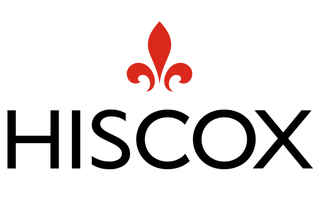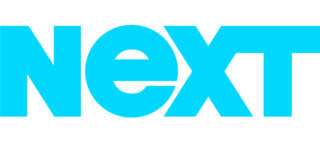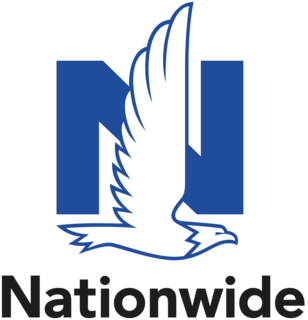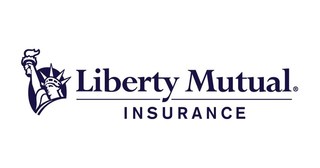8 Best Small Business Insurance of 2023
Business insurance can protect your company and assets from a variety of risks, including expenses related to property damage, injuries sustained by employees, liability claims from third parties and even lawsuits.
While it's advisable for all types of businesses to have general liability coverage, the decision to invest in additional coverage should depend on your industry, the location of your business, the number of employees you have and the amount of commercial assets you own.
To find the right coverage for you, take a look at our top picks for the best small business insurance companies
Our Top Picks for the Best Small Business Insurance Companies
- Chubb – Best for customer satisfaction
- State Farm – Runner-up for customer satisfaction
- Travelers – Best for workers’ compensation
- Nationwide – Best for general liability insurance
- Progressive – Best for commercial auto insurance
- CyberPolicy – Best business insurance marketplace
- Thimble – Best for micro businesses
- Liberty Mutual – Best umbrella insurance
Best Small Business Insurance Reviews
- Offers a suite of business insurance products for small, mid-size and large enterprises
- Outstanding customer satisfaction ratings
- Few NAIC complaints for a company of its size
- Online quotes aren't available for every type of policy
- Businesses with more than $2 million in revenue must work with a local agent
Why we chose Chubb: Chubb is our pick for the best small business insurance company for customer satisfaction because it consistently ranks above the industry average in J.D Power's Small Commercial Insurance Study. It also has an unusually low number of complaints with state regulators for a company of its size.
Chubb has been in the business insurance industry for almost 140 years. The company offers a host of commercial insurance products and services for businesses of all sizes and across multiple industries. Though Chubb is a major national insurer, the carrier still caters to small business owners and features a separate hub on its website just for small business insurance products.
Small business owners can purchase business owners policies, workers' compensation insurance, liability coverage, cyber insurance and umbrella insurance. And if the business has a projected annual revenue of $2 million or less, owners can get an online quote through Chubb's website without going through an agent.
That being said, business owners with other insurance needs must get in touch with a local agent to get a quote, as Chubb doesn't offer online quotes for insurance products not listed in its small business hub.
- A.M. BEST RATING
- A++
- J.D. POWER RATING
- 855/1000
- NAIC COMPLAINT INDEX
- Low
- Insures more than 300 professions
- Highly customizable insurance policies
- Live chat support
- Not all insurance agents can cross state lines
- Claims are filed over the phone, not online
Why we chose State Farm: State Farm is our runner-up for customer satisfaction because of its top rating in the latest J.D Power's Small Commercial Insurance Study. Moreover, the company has consistently ranked within the top three insurers for customer satisfaction over the last three years — though it has a higher NAIC complaint index than our top pick, Chubb.
State Farm was awarded 856 out of 1,000 points for customer satisfaction in J.D. Power's Small Commercial Insurance Study, followed closely by other industry veterans like Chubb and Nationwide. For this study, J.D. Power surveyed 2,254 small businesses with 50 or fewer employees and examined their satisfaction across five categories, including billing and payment, claims, provider interaction, policy offerings and cost.
State Farm offers business insurance designed for independent contractors, restaurants, professional services, and retailers, with paperless billing and autopay options. Commercial insurance products include BOP bundles, surety and fidelity bonds and farm and ranch insurance.
The company’s extra liability coverage includes professional liability, errors and omissions liability, employment practices liability insurance (EPLI), not-for-profit liability insurance with EPLI, and condo and homeowners association directors and officers liability with EPLI.
Other coverage options include:
- Commercial Auto
- Inland Marine Insurance
- Workers’ Comp
- Group Life Insurance
- Retirement Plans
For a complete list of the types of businesses and organizations State Farm insures, check out its handy business insurance directory.
- A.M. BEST RATING
- A++
- J.D. POWER RATING
- 856/1000
- NAIC COMPLAINT INDEX
- High
- Largest workers' compensation insurer in the U.S.
- A++ rating from A.M. Best for superior financial stability
- Broad network of local insurance agents across the country
- Commercial auto and trucking, cyber coverage and ocean marine policies
- Coverage availability varies by state
- You can only get quotes and file claims by phone
Why we chose Travelers: We chose Travelers as the best small business insurance company for workers’ compensation because of its excellent billing solutions and reputation as the leading underwriter of these types of policies.
Travelers sells workers' compensation coverage that adapts to your business needs. The company’s risk control consultants — the people in charge of inspecting and assessing your insurance needs — can do in-person or virtual visits. Travelers also offers a flexible billing option through TravPay, a pay-as-you-go service that syncs your workers' compensation premium payments with your payroll processing.
As of 2022, Travelers also holds the largest market share for workers’ compensation policies, as well as the top two positions for commercial auto insurance. These statistics are a strong indicator of its popularity as a commercial insurer.
In addition to workers’ compensation coverage, small business owners have access to the following insurance products:
Business owner’s policy
- Professional liability
- Commercial umbrella
- Employment practices liability
- Management and professional liability
- Data breach
- Commercial auto
- Business income and extra expense
- Commercial general liability
- Commercial property
- A.M. BEST RATING
- A++
- J.D. POWER RATING
- 847/1000
- NAIC COMPLAINT INDEX
- Low
- Offers BOP insurance to businesses with up to $5M in annual revenue
- Business Solution Center offers cybersecurity advice and social media guides
- No disability insurance or major medical insurance
- No online chat support
- Nearly half of its subsidiaries have a high NAIC complaint index
Why we chose Nationwide: Nationwide is our choice as the best small business insurance company for general liability policies because it allows customers to enhance this coverage through a variety of endorsements, from liquor liability to personal and advertising injury coverage. This allows small business owners to tailor the policy to their specific industry.
Nationwide offers a wide array of products for small business owners, including business liability, commercial property, commercial auto insurance policies and workers’ compensation insurance.
Business owners can supplement Nationwide’s general liability insurance with additional coverage, including:
- Fire legal liability: Coverage against claims of negligence if you cause fire damage to a property you rent
- Auto liability: Covers short-term auto rentals and employees who use their personal car for business
- Umbrella policy: Adds increased coverage beyond the limits of other liability policies
- Employment practices liability insurance (EPLI): Coverage against claims of wrongful termination, refusal to employ, invasion of privacy and defamation
Other liability endorsements include product and completed operations liability, directors and officers liability, liquor liability and personal and advertising injury coverage.
- A.M. BEST RATING
- A+
- J.D. POWER RATING
- 854/1000
- NAIC COMPLAINT INDEX
- High
- Second-largest business auto insurer in the U.S.
- Discount for bundling multiple business insurance policies
- Policies cover a wide variety of risks and vehicle types
- No online support via live chat
- Discounts are not available in all states
Why we chose Progressive: Progressive is our choice as the best small business insurance company for commercial auto policies because it's available in all 50 states and covers almost every type of commercial vehicle. Additionally, policyholders benefit from an unlimited travel radius (in most states) and may adjust coverage as needed at any time, free of charge.
Progressive stands out for its commercial vehicle insurance, which is available for commercial trucks, business cars, emergency vehicles, military vehicles, and a variety of SUVs, vans, trucks, buses, tractors and trailers. This policy generally covers liability, physical damages, medical payments, uninsured motorist, hired auto and non-owned coverage.
Progressive also offers business owner's policies (BOP), general liability coverage, professional liability coverage, workers’ compensation, health insurance and cyber insurance.
- A.M. BEST RATING
- A+
- J.D. POWER RATING
- N/A
- NAIC COMPLAINT INDEX
- High
- Discounts for bundling policies with the same carrier or across carriers
- Compare quotes from multiple carriers for policies starting at $10/mo
- Apply and submit claims online; coverage begins within 24 hours
- Available nationwide, but policies vary by state
- Claims must be submitted directly through each carrier's claims department
Why we chose CyberPolicy: We chose CyberPolicy as the best small business insurance marketplace because it partners with several leading carriers (some of which are featured on this list), simplifying the process of comparing business insurance quotes. Customers can also get discounts for bundling multiple policies, even if they purchase them through different carriers.
CyberPolicy is a marketplace for small business insurance policies that partners with some of the most prominent industry players — Chubb, Hiscox, Liberty Mutual, Nationwide and BiBERK — to provide a convenient, one-stop shopping experience. The company offers free quotes, and once you purchase a policy, coverage starts in as little as 24 hours.
CyberPolicy offers the following coverage options:
- Fidelity and crime
- Employment practices liability
- Lessor’s risk only (LRO)
- Liquor liability
CyberPolicy’s customer service includes a licensed insurance advisor available via chat to help you decide on the best commercial insurance options for your business.
- A.M. BEST RATING
- N/A
- J.D. POWER RATING
- N/A
- NAIC COMPLAINT INDEX
- N/A
- Flexible policy terms with weekly, daily, or even hourly coverage
- Certificate of Insurance in 60 seconds
- Over 100 types of small businesses insured
- No options to call or chat
- Policies not available in NY or WA
Why we chose Thimble: Thimble is our choice as the best small business insurance company for micro business because of its flexible policy terms and affordable coverage. Small business owners can even purchase coverage by the hour, ideal for those who are self-employed or work on demand.
Thimble offers cost-effective monthly and as-needed general and professional liability insurance coverage for small businesses. It also caters to self-employed individuals, such as freelancers, personal trainers, pet sitters, event planners, photographers, landscapers, beauty professionals and all others in between.
Micro businesses — operations with fewer than 10 employees — can benefit from Thimble's adaptable terms, including the ability to purchase coverage for whatever duration they require and extend, modify or cancel the policy straight from the Thimble app.
Thimble also offers the following coverage options:
- Drone insurance
- Event insurance
- A.M. BEST RATING
- Underwriters Markel Insurance Company and National Specialty Insurance Company are rated A
- J.D. POWER RATING
- N/A
- NAIC COMPLAINT INDEX
- N/A
- File claims online or with the mobile app
- 24-hours claims assistance
- Crisis management support services
- Policies served by independent agents
- High NAIC complaint index in all of its subsidiaries
Why we chose Liberty Mutual: We chose Liberty Mutual as the best small business insurance company for umbrella insurance because its base umbrella policy offers up to $25 million in coverage and can be increased to $100 million. This is a great option for companies looking for complete liability protection.
Liberty Mutual’s umbrella insurance provides additional liability coverage beyond the limits of existing policies, including auto, watercraft and homeowners insurance. The company’s umbrella policy also includes crisis management support services, covering up to $250,000 in expenses related to media coverage and public relations consultancy.
Regarding customer service, Liberty’s specialized underwriters are trained to understand complex risks across a variety of industries, and their dedicated complex liability claims unit is experienced in navigating catastrophic losses.
- A.M. BEST RATING
- A
- J.D. POWER RATING
- 834/1000
- NAIC COMPLAINT INDEX
- High
Other companies we considered
The following companies did not make it to our top list but are still worth considering.
NEXT
- Full online enrollment
- Specializes in insurance for small businesses and self-employed entrepreneurs
- Free and unlimited certificates of insurance
- Low NAIC complaint index
- Doesn't offer specialized insurance policies
- No dedicated agents
- Not suitable for larger businesses with more risk factors
NEXT Insurance uses AI and machine learning to optimize the insurance application process and match consumers with the most affordable policies. The company currently offers 15 business insurance products (availability varies by state).
Why NEXT Insurance didn’t make the cut: NEXT Insurance didn’t make it into our top picks because it solely caters to business owners who prefer a tech-driven service. And as your business grows, NEXT’s insurance products might not offer adequate coverage. That said, it’s a solid option for startups that only need the basics.
Simply Business
- Easy-to-use platform with a wealth of industry-specific resources
- Partnered with reputable carriers such as Axis, Harborway and Travelers
- Customer support is only available by phone and on weekdays
- Not a direct insurance provider
Simply Business is an online broker that provides quick online quotes from multiple insurers. The site is a good choice for those who would like to quickly compare quotes side-by-side or are still uncertain about the kind of coverage they should be getting.
Why Simply Business didn’t make the cut: Simply Business didn’t make it to our top list because its service is very similar to our top pick for the best insurance marketplace, but it doesn't offer cross-carrier discounts.
Hiscox
- Long-standing business insurer with nearly 120 years of experience
- Wide range of policies tailored for smaller companies
- Low NAIC complaint index
- Online quotes and purchases are not available for all insurance products
- Coverage unavailable in Alaska
- BOP is unavailable in AK, DE, FL, KS, RI, WA and WV
Hiscox offers various policy options best suited for self-employed individuals or small businesses with few employees. The company’s BOP policy is currently limited to businesses that employ 10 people or less, such as consultants, recruiters, PR specialists, graphic designers, photographs and others.
Why Hiscox didn’t make the cut: Hiscox’s business owner's policies (BOP) cater to a very specific commercial sector: professional services with less than 10 employees. Moreover, this policy is currently only available in 43 states and the District of Columbia.
The Hartford
- Provides workers' compensation insurance nationwide
- Discount for bundling policies
- Below-average rating in J.D. Power's Small Commercial Insurance Study
- No coverage in Alaska or Hawaii
- Can't file business claims on the app
The Hartford stands out for its comprehensive Business Owner’s Policy (BOP), a three-in-one policy that combines general business liability insurance, business property insurance and business income insurance. The BOP also includes protection from loss of income caused by fires, destructive winds, burglaries, bodily injury or property and personal and advertising injury.
Why The Hartford didn’t make the cut: The Hartford offers a host of business insurance products that can be tailored to each client’s needs. However, the company didn't quite match up to our top picks in terms of customer satisfaction ratings or nationwide availability.
Geico
- No cancellation fees and prorated refunds if you cancel a policy
- Live chat support and online access
- Many of its products are offered through a partnership with Hiscox
- Commercial auto insurance doesn't cover semi-trucks and tractor-trailers
- Most subsidiaries have a high NAIC complaint index
Geico’s business insurance products include commercial auto, rideshare, general liability, professional liability, a business owner’s policy, and workers’ compensation. Its experience with auto insurance makes it a good choice for commercial auto coverage and rideshare coverage. However, these two products are some of their most expensive and lack online claim filing.
Why Geico didn’t make the cut: We excluded Geico from our top picks because all of its business insurance products (except commercial auto insurance) are underwritten and administered by another provider, Hiscox.
CNA
- Solid financial strength ratings and 100+ years of industry experience
- Cyber liability and media liability coverage
- Negative customer feedback online
- Dated online experience
Another well-established carrier, CNA has been around since 1897, when it began offering coverage to railroad industry employees. The company now sells a wide variety of insurance products — including fidelity and commercial crime business solutions and inland and ocean marine insurance — for businesses of different sizes.
Why CNA didn’t make the cut: CNA is a reputable insurance carrier, but users who’d like to learn more about its insurance products online might find the website a bit lackluster and challenging to navigate.
Business Insurance Guide
In the following guide, we explain how business insurance works and how it fits into your overall business plan. You'll also find brief definitions of each type of business insurance coverage and how much each one costs, on average.
Once you understand the basics of business insurance, follow our step-by-step advice to ensure you're purchasing the right amount of coverage at the best price.
How does business insurance work?
Business insurance works similarly to other types of insurance. Clients pay a monthly premium to an insurance carrier in return for the insurer agreeing to share a portion of the business’s risks. In the event of a covered loss, such as fire or flood that destroys the business's premises, the business owner can then file a claim for reimbursement with the insurance company.
Once a claim is processed and the damages are assessed, the insurance company disburses the appropriate amount of compensation for the loss. How exactly a claim is processed will depend on the scale of the claim and the type of policy.
Types of small business insurance
Business insurance companies offer a wide variety of products, which broadly fall under one of two categories: property insurance and casualty insurance. Some of these products are sold as individual policies, whereas others can be added to existing policies as insurance riders or add-ons. Some are even required for all businesses by federal or state law.
It’s important to note that the insurance products listed below represent only a portion of the many types of coverage options offered by insurance carriers. Other specialized types of coverage are available to meet the unique needs of specific business sectors, such as the agriculture, aerospace, real estate and wine industries.
General liability insurance
General liability insurance policies cover claims or lawsuits against a business due to bodily injury, property damage, medical expenses, death, slander or libel. The coverage also extends to the cost of legal fees, settlements and judgments in an eligible claim.
Commercial property insurance
Commercial property insurance covers the loss of or damage to a business's tangible assets, including tools, equipment, inventory, furniture, valuable documents or outdoor landscaping. The policy covers equipment breakdown, vandalism and damage due burst pipes, fire and certain natural disasters.
Business owners’ policy (BOP)
A business owner's policy bundles multiple coverage options into a single policy designed for small and medium-sized businesses.
A BOP typically includes liability, property and business interruption coverage. This type of policy can protect your business against lost income or extra expenses incurred due to a covered loss. Some BOP policies also include cyber security coverage.
Cyber liability insurance
Cyber liability insurance covers expenses related to data breaches, cyberattacks and other cyber events (e.g., direct financial losses, customer loss and legal costs.) This coverage is fundamental for businesses that are top targets for cyberattacks, such as online retailers, online service, fintech and insurance companies.
Workers’ compensation
Workers' compensation covers expenses related to medical care, lost wages and disability benefits if an employee is injured at work. If the employee dies as a result of the injury, the insurance will cover funeral expenses and other compensations to the family.
In every state but Texas, business owners must purchase workers' compensation coverage by law if they employ over three to five employees. The minimum number of workers varies from state to state.
Workers’ compensation coverage is not to be confused with disability insurance, a benefit of business health insurance that covers the employee’s healthcare expenses outside the workplace.
Commercial auto insurance
Commercial auto insurance typically covers liability for bodily injury and property damage caused by an accident involving a business-owned vehicle, as well as damage to the vehicle itself. The coverage can also extend to the non-owned vehicles used by employees for business purposes, such as rental cars.
Professional liability insurance
Professional liability insurance, also known as errors and omissions insurance, provides coverage for professionals who give advice or services to clients such as lawyers, accountants, consultants, real estate agents and other professional services. This policy protects business owners if a client alleges that they have suffered financial losses as a result of the professionals’ negligence or errors or omissions in their work.
Common business insurance riders
Insurance riders, floaters, add-ons or endorsements modify basic business insurance policies to add benefits that meet the needs of the company. The most common riders include:
- Commercial property floater: A type of insurance that provides coverage for a business’ movable property, including equipment, tools, inventory and supplies, whether they are located on or off the premises.
- Personal property rider: An add-on that increases coverage for highly valuable items that exceed the coverage limits of a standard personal property policy.
- Business interruption insurance: Provides financial protection to businesses in the event of an unexpected disruption or interruption to their normal operations, as in the case of natural disasters, fires or other catastrophic events.
- Key person coverage: Protects the business from the financial impact of losing a key employee or owner in the event of the key persons’ death or disability.
What isn’t covered by small business insurance
The best business insurance policies provide coverage for a wide range of risks, but certain losses and events are typically excluded from coverage. These may include:
- Intentional and criminal acts: The insurance company will deny a claim if it finds signs of intentional damage to property, or fraud or theft by the insured, an employee or a key person.
- Lack of maintenance or mitigation: Business insurance providers won’t cover damages caused by lack of maintenance. For example, this could be damages to a roof that had unaddressed filtration issues.
- Catastrophic damage: Commercial property insurance doesn’t cover damage from floods, earthquakes, wars or acts of terrorism because such events can affect many policyholders at once and lead to disastrous losses for insurance providers. In the case of flood or earthquake damage, you might need a separate insurance rider.
If your business is in need of financial help, the first step is to check whether you're eligible for SBA funding programs. Businesses that suffer damages in a declared disaster can also apply for an SBA-backed disaster assistance loan to cover repairs, replacement of property, operating expenses and economic injury.
The next option is to secure funding from private lenders. Check out our best small business loans and startup business lines of credit for recommendations.
How much is small business insurance?
According to The Hartford, the average cost of business insurance ranges between $70 and $261 a month or $840 and $3,125 a year. The final cost will depend on your industry, the number of people you employ, the type of coverage you purchase and your claims history, if applicable.
The table below shows the average monthly premium for common types of business insurance policies, according to online insurance broker Insureon. We still encourage you to get quotes from different insurers, as your rate might differ significantly from the averages listed.
table
How to get small business insurance
As with buying personal insurance, spending a little time planning your business coverage upfront can pay off handsomely. These steps can save you time and money when comparing small business insurance costs and policies online.
1. Take stock of your business assets
Make a list of what the business owns, including property, equipment and inventory. Then, determine the value of those assets to ensure you buy sufficient coverage to repair or replace them if the worst happens.
2. Figure out how much coverage you need
Compile a list of all your business's functions and activities. Then, determine which types and levels of coverage you'd need to cover the risks involved in each one.
3. Seek professional help
The coverage assessment we describe above is best completed with the help of an insurance professional. Seek an independent agent or marketplace specializing in business insurance and who represents a variety of insurers.
4. Compare quotes
The policies you compare should have the same, or similar, exclusions, deductibles and coverage limits. An agent or marketplace will be able to provide you with business insurance quotes from the companies they represent. Consider supplementing those with quotes from companies you reach out to yourself — including some of those on our list.
5. Look for policy bundling discounts
Many insurance companies offer discounted prices when you purchase multiple policies. Apart from the financial benefits, bundling coverage can also streamline the process of paying premiums, getting in touch with customer service and filing claims, saving you time and energy.
6. Review your business insurance regularly
Reviewing your business insurance coverage gives you a chance to assess how you’ve used your policies in the past and if you need to increase or lower your coverage limits. You may be able to drop coverage or increase deductibles to money on premiums.
Besides annual reviews, try to re-evaluate your business’s coverage level and policy type whenever business needs or circumstances change.
What documents do you need to get a business insurance policy?
The information and documents you need to take out a business insurance policy will vary based on the type policy or policies you want to purchase. Generally, you want to have the following on-hand:
- Business location, name and partners
- Business registration and incorporation documents
- Record of business assets and liabilities
- Bank information (if you don’t have a separate checking account for your business already, we recommend you take a look at Money’s best business checking accounts)
- Number of employees, if applicable
- Basic contact information for yourself and the company
- Health and safety policy documents
- Professional certificates, if applicable
- An estimate of your business's revenue for the upcoming year
- Details about business operations and occupational hazards (for example, handling dangerous chemicals, performing onsite installations for clients, etc.)
- Information about the company's vehicles and driver details (for commercial auto insurance)
- Insurance history, including existing insurance policies and prior claims
Latest News on Small Business Insurance
Though certain businesses, such as sole proprietorships, may get liability insurance without a business license, most businesses need a license in order to get the right coverage. Read our guide on how to get a business license to get started.
As a small business starting out, business networking can open up new opportunities, enhance your visibility and help you connect with the right employees and colleagues. Check out our tips for successful business networking for practical advice and guidance.
Losing valuable employees is expensive, it negatively impacts team morale and it can even harm customer relationships. Our guide on how to retain employees offers valuable advice on how to keep your most experienced employees on board.
Best Small Business Insurance FAQs
How much is small business liability insurance?
What insurance is needed for a small business?
You should consider a BOP even if your business is registered as an LLC. While an LLC protects your assets by separating them from those of your business, you are not covered against all risks. A BOP can add additional protection against things like property damage and business interruption.
What is small business insurance?
Business owners can purchase a business insurance policy with several types of protection, or buy each coverage individually if they're just looking for a specific policy, such as general liability or property insurance. Talk to an insurance agent or broker to figure out what level of coverage is best for you.
What does professional liability cover?
What is the cheapest small business insurance?
How We Chose the Best Business Insurance Companies
Our methodology for choosing the best small business insurance providers focused on five key factors:
- Financial stability
- Business types and sizes covered
- Customer satisfaction
- The ease of applying for a policy and submitting a claim
To review customer satisfaction, we referenced J.D. Power’s 2022 U.S. Small Commercial Insurance Study as well as each company's complaint index as reported by the National Association of Insurance Commissioners (NAIC).
Summary of Money’s Best Small Business Insurance
- Chubb – Best for customer satisfaction
- State Farm – Runner-up for customer satisfaction
- Travelers – Best for workers’ compensation
- Nationwide – Best for general liability insurance
- Progressive – Best for commercial auto insurance
- CyberPolicy – Best business insurance marketplace
- Thimble – Best for micro businesses
- Liberty Mutual – Best umbrella insurance
















